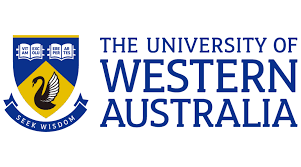University of Western Australia: More graduates ensure a strong public health workforce
A new study by researchers at The University of Western Australia examining the growth in public health graduates and courses in Australia has found a large rise in students graduating with public health qualifications in Australia over the past two decades.
The study, published today in the Australian and New Zealand Journal of Public Health, called for greater investment in public health to provide job opportunities commensurate with the growth in capacity.
Co-author Dr Ian Li, from UWA’s School of Population and Global Health, said Australia had fared comparably well internationally in their public health response to the COVID-19 pandemic.
“This has resulted in relatively strong population health and economic outcomes, which can be attributed to the efforts and expertise of Australia’s public health workforce and other frontline health staff,” Dr Li said
“We should leverage the public health capacity and expertise of our graduates, and make deeper investments in the public health workforce. This will boost the well-being of the Australian population and economy in the long-term and see us through future health challenges.”
Lead author and PhD candidate Rory Watts, from UWA’s School of Population and Global Health, said the findings emerged at a time when better information to support public health responses, including knowledge about the public health workforce, was crucial.
“There has been strong growth of graduates taking out public health degrees,” Mr Watts said.
“Growth has been particularly strong at the Masters level, with completions 3.5 times the number of completions at the turn of the century.”
Rory Watts
“Understanding the trends in public health degree completions and the composition of these graduates, such as the proportion of Indigenous graduates, greatly assists workforce and curricula planning, and ensures the needs of Australia’s population are being met.”
The researchers analysed national degree completions data from the Federal Department of Education, Skills and Employment.
Previously published data on the demand for public health graduates and employment growth was used to assess the broader labour market environment for public health professionals.
“There is some concern that the growth in public health graduates has outstripped the employment growth and opportunities,” Mr Watts said.
“However, the needs of the current pandemic as well as efforts to plan for and avert future crises could lead to stronger investment and demand for public health expertise.”
Another area of concern was the finding that the proportion of Indigenous graduates in public health has declined.
“Policies to encourage the participation of Indigenous students in public health should be looked at, including the strength of Indigenous content in our degree offerings, and support for these students,” Mr Watts said.
“Other barriers to study should also be identified and addressed.”

